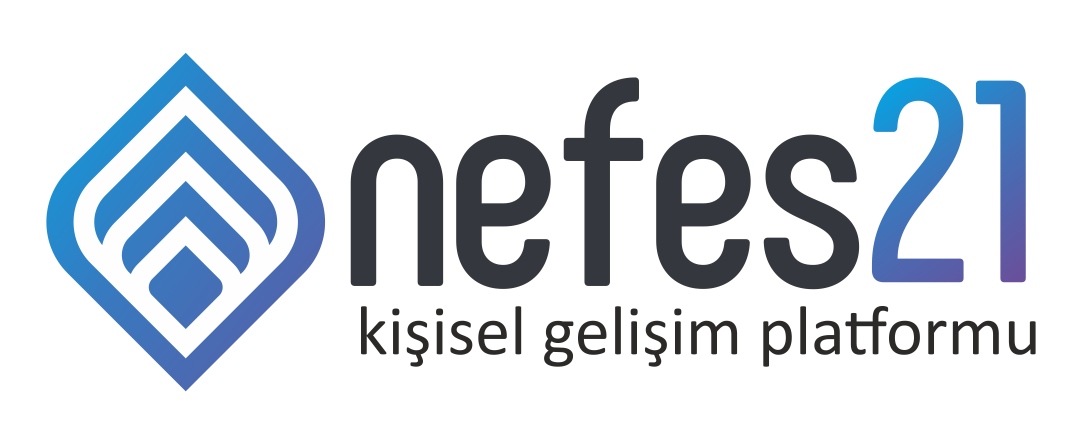Knowing Yourself: Meeting Your True Power

Introduction
Defining a direction, drawing up a life plan, setting goals... What lies at the heart of all these things? It’s knowing yourself. Trying to build a genuine lifestyle without self-awareness is like sailing a ship without a compass—you don’t know where you’re going or why you’re moving in the first place.
Knowing yourself isn't just about discovering your strengths; it's also about recognizing your boundaries, values, fears, expectations, and inner voice. Learning to listen to that inner voice instead of chasing external validation—that is the gateway to freedom.
In this article, I’ll take you on an internal journey together. We’ll explore what self-awareness means, why it matters, and how you can achieve it step by step. If you want to live a life aligned with who you truly are and make a difference in the outside world, then this article is for you.
1. Why Is Knowing Yourself So Important?
a) Living Up to Others' Expectations Creates Inner Emptiness
Much of our lives are spent trying to meet other people’s expectations. The career your parents dreamed of, the behaviors expected by your friend group, or the norms imposed by society—all of these can slowly distance us from who we really are.
When we suppress our inner voice to chase external approval, we lose touch with ourselves. However, inner emptiness doesn’t come from not having enough external validation—it comes from not feeling connected to who we are. A person who knows themselves will have consistency in their identity rather than constantly seeking others’ approval.
b) Freedom Comes From Within
True freedom isn’t about rejecting rules or saying “yes” to everything—it’s about making conscious decisions based on your own values. A self-aware person can answer questions like:
- What do I believe in?
- What motivates me?
- Which values shape me?
This awareness allows them to make decisions independently, without being swayed by others' opinions.
Freedom means knowing your limits and standing firm when necessary—not just rebelling against authority.
2. What Does It Mean to Know Yourself?
People new to self-awareness often ask:
- Where should I start?
- What am I even looking for?
- What changes once I truly understand myself?
Self-knowledge simply means:
Turning inward and becoming aware of who you are.
This awareness has nothing to do with external success or failure—it’s about your inner stance. Understanding who you are, what you believe, what brings you joy or stress…
Knowing yourself isn’t a one-time event—it’s a lifelong process. It deepens over time and evolves as you grow.
3. Why Is It Difficult to Know Yourself?
Everyone wants to understand themselves, but few actually commit to the process. Why?
a) We're Focused on the Outside World
As modern life moves quickly, our attention is constantly pulled outward—social media, news, messages, workloads… In the rush of daily life, we rarely find the space to look inward.
b) Facing Yourself Isn't Easy
One of the hardest parts of self-awareness is honesty. You must see both your strengths and areas needing growth. Most people enjoy seeing their positive traits, but confronting weaknesses can be uncomfortable.
c) We Expect Quick Results
Knowing yourself isn’t fast. It’s not like following a travel guide through a city—it’s more like walking with a small lantern in the dark. Over time, you'll see more, but patience is essential.
4. What Steps Should You Take to Know Yourself?
Let’s now walk through practical steps. Where should you begin?
a) Build a Dialogue With Yourself
The power of silence should never be underestimated. Spend at least 10 minutes each day in silence and talk to yourself. Ask yourself:
- What emotion did I feel today?
- When did I feel safe?
- When did I get angry or scared?
- Which behaviors do I regret?
b) Journaling (Writing Down Thoughts)
Writing is one of the most powerful tools for thinking. Keeping a journal helps organize your thoughts. For example, you could write under headings like:
- Today’s biggest takeaway:
- The strongest emotion I felt:
- The thought holding me back:
- What I’m grateful for today:
c) Seek Feedback
Listening to how others see you is also important. Have honest conversations with close friends, family, or colleagues. Ask them what traits they associate with you and in which situations you appear strong or helpless.
d) Explore Your Interests
Another way to know yourself is to observe your interests. In which areas do you invest the most energy? Which activities motivate you? While watching a movie, which character do you relate to the most?
e) Use Personality Tests
Tools like the Myers-Briggs Type Indicator (MBTI), Big Five, or DISC assessments can help you understand your psychological makeup. Keep in mind: These offer frameworks, not final answers.
5. What Do You Gain From Knowing Yourself?
A self-aware person demonstrates a more conscious and powerful presence in many areas of life. Here are some key benefits:
a) Less Indecision
A self-aware person makes decisions based on personal values. As a result, hesitation decreases. Instead of asking others, “What should I do?” you learn to trust your inner compass.
b) Greater Self-Confidence
Someone who understands themselves is aware of both strengths and weaknesses. This awareness boosts confidence. Criticism from others won’t shake you because you already know who you are.
c) Better Relationships
A self-aware person communicates more openly and honestly in relationships. They know what they want and what they won’t tolerate. This leads to healthier connections and stronger boundaries.
d) Closer to Life’s Purpose
A self-aware person clarifies their purpose. Because their purpose isn’t based on someone else’s dream but on their own inner values, they can lead a consistent, meaningful life.
6. Common Misconceptions About Knowing Yourself
Many people fall into traps while trying to understand themselves. Some of these include:
a) The Myth of "I Fully Understand Myself"
No one ever completely knows themselves. People are open to change and growth. Knowing yourself is not reaching a fixed point, but a continuous process of awareness.
b) Only Focusing on Weaknesses
Some people focus only on their flaws when starting to know themselves. But recognizing your strengths is just as important for balance.
c) Measuring Yourself Through External Success
Knowing yourself isn’t about degrees, salary, or job titles. It’s about inner awareness. Without self-awareness, external achievements may feel empty.
7. Knowing Yourself and Personal Development
Personal development is part of the journey of self-awareness. Real growth begins with accepting your current state. Without understanding yourself, talking about change becomes meaningless.
Development isn’t just reading books or attending courses—it’s rooted in awareness. As you improve your relationship with yourself, your connection with the world around you strengthens too.
8. Knowing Yourself and Career Choice
Choosing a career is one of the most critical decisions in life. Yet, what do we often base this decision on? Usually external factors: money, prestige, family pressure. However, true career satisfaction comes when your job aligns with your talents, values, and interests.
A self-aware person knows which environments they thrive in and which tasks allow them to express themselves best. This knowledge empowers them to make the right career choice.
9. Knowing Yourself and Relationships
Most problems in relationships stem from not knowing oneself. Before understanding others, you need to understand yourself. Without knowing your needs, expectations, and reactions, building healthy relationships becomes difficult.
A self-aware person can easily answer:
- When do I feel my boundaries are crossed?
- What situations cause hurt or jealousy?
- Which behaviors support me and which ones harm me?
This awareness builds empathy, communication, and openness to solutions in relationships.
10. Knowing Yourself and Happiness
At the core of happiness lies peace with oneself. A self-aware person can move forward on their own path without comparing themselves to others. They can love themselves, forgive their mistakes, and celebrate their successes.
True happiness isn’t about external validation—it’s about inner alignment. Someone who lives consistently with themselves experiences less stress and greater inner peace.
11. Practical Exercises to Know Yourself
Now let’s go through some concrete exercises. If you integrate these into your daily life, your self-awareness will accelerate.
a) 5-Day Journaling Exercise
Each evening, write short answers to these questions:
- What emotion did I experience today?
- When did I feel happy?
- When did I get upset?
- Which decision am I proud of today?
- When was I unkind to myself?
b) “Who Am I?” List
Use these categories to create a list:
- My talents
- My values
- My fears
- My interests
- My strengths
- My areas for improvement
- Things I’ve achieved
- What might my life purpose be?
Update this list over time.
c) Meditation to Listen to Your Inner Voice
Sit quietly for 10 minutes each day. Close your eyes. Focus on your breath. Let thoughts pass. Occasionally ask yourself:
- What was the strongest feeling I had today?
d) Observing Yourself in Daily Life
Observe yourself during daily activities:
- At work, which tasks motivate you?
- In social groups, what roles do you play?
- In which environments do you feel comfortable or stressed?
12. Knowing Yourself and Lifestyle
A self-aware person consciously chooses their lifestyle. Their diet, exercise, work habits, and hobbies all align with their rhythm.
They avoid doing things just because “everyone does it.” Instead, they build a life model that fits them. It can evolve, but it always remains intentional.
13. Knowing Yourself and Leadership
Leadership is less about managing others and more about managing yourself. Great leaders know their strengths, accept their limits, and maintain high self-awareness.
A self-aware leader communicates better with their team, shows empathy, and makes thoughtful decisions during crises.
14. Knowing Yourself and Time Management
Time management is about knowing your priorities. A self-aware person knows what they value. Therefore, they allocate their time accordingly. They spend their energy on the right things.
Time management isn’t just scheduling—it’s understanding your needs and motivations.
15. Knowing Yourself and Mental Health
Mental health starts with self-awareness and acceptance. A self-aware person can recognize early signs of emotional issues. They manage stress and reduce depression risk.
These individuals aren’t afraid to seek help—they know their needs well.
16. Knowing Yourself and Character Development
Character is shaped not only by innate traits but also by conscious choices made over time. A self-aware person can intentionally develop qualities like honesty, patience, and sacrifice.
17. Obstacles in the Journey of Self-Knowledge
You may face some challenges along the way:
a) Sensitivity to Criticism
When you understand yourself, some feedback may not sit well. That’s normal. What matters is learning from criticism, not defending yourself against it.
b) Feeling Incomplete
Recognizing your gaps can initially feel discouraging. But this awareness is the first step toward growth.
c) Dependency on External Approval
If you're used to relying on others’ approval, the journey of self-awareness may feel tough. But eventually, you’ll realize your inner approval is enough.
18. Knowing Yourself and Emotional Intelligence
Emotional intelligence is the ability to understand and manage your own emotions and those of others. A self-aware person naturally develops emotional intelligence. As a result, they communicate better and show more empathy.
19. Knowing Yourself and the Meaning of Life
Ultimately, we all ask the same question: “What is the meaning of life?” There’s no single answer. But one thing is certain: You discover meaning as you come to know yourself.
Because whatever you value becomes your meaning. A self-aware person doesn’t get lost in the search for meaning—they find it within.
20. Knowing Yourself: Meeting Your True Power
After all this, we arrive at one truth: Our real power lies not outside, but inside. A self-aware person stands on their own two feet without needing others' approval. They can chart their own course without getting lost in life.
Know yourself. Listen to your inner voice. Develop your strengths. Respect your limits. Because real power doesn’t come from others—it comes from you.
Conclusion
Knowing yourself is the most powerful way to give meaning to life. This journey may take different forms for everyone, but it always leads to one thing: living consciously.
I hope this article gave you the courage to explore your inner world. Remember, there is no end to self-awareness. Every day offers something new to discover. The best journey is the one you take inward.
I'm honored to walk this path with you. As you get to know yourself, you’ll meet your true power—and that power is your most authentic self.
En güncel gelişmelerden hemen haberdar olmak için Telegram kanalımıza katılın!





















